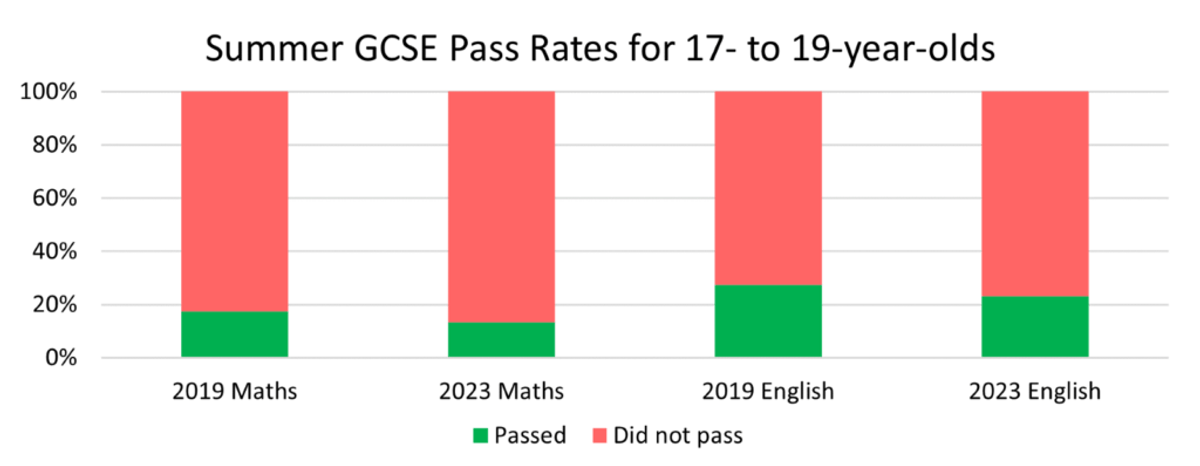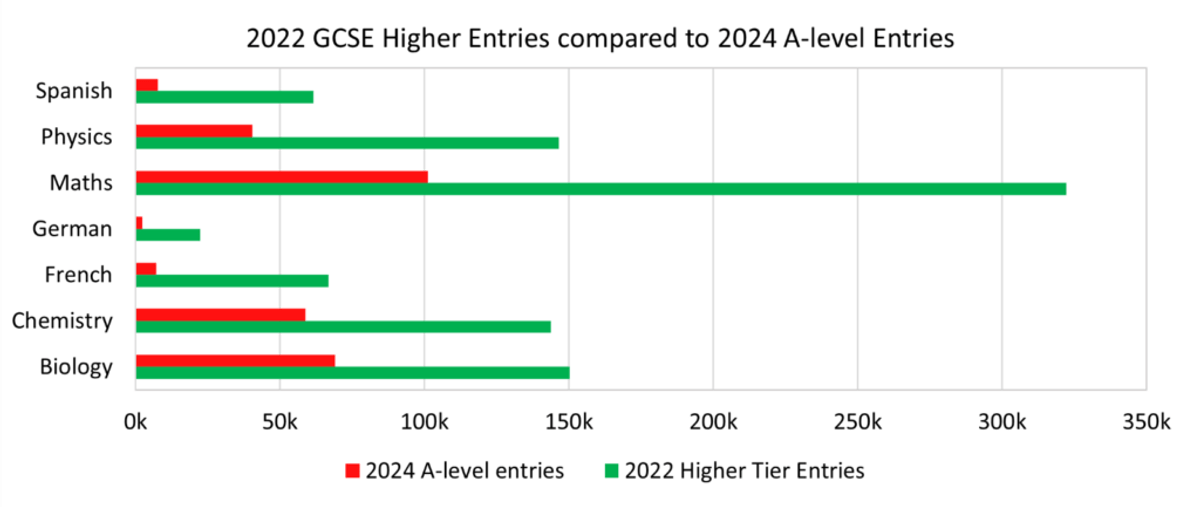
© iStock.com/monkeybusinessimages
Out of the over 6 million results to be issued to students in England this summer, more than 5 million of them will be GCSE results issued on Thursday. We take a look at what this year’s GCSE entries might tell us about this cohort.
First, for context, this year’s GCSE students were in Year 7 when the pandemic hit in 2020. Their foundational learning was disrupted in years 7 and 8. However, in 2020-21, the government introduced the National Tutoring Programme “to support pupils most affected by disruption to their education as a result of the coronavirus.” This ran almost throughout their secondary schooling, ending this academic year.
So, what can the GCSE entries tell us about this group?
Number of GCSE English and Maths Resit Students Increasing
This year, the number of GCSE English entries for Year 12 and above has grown by 22.3%. Maths entries now exceed 200,000, representing about 25% of the total subject entries and an 18.3% increase from last year. But rises are likely unrelated to the estimated less than 2% increase in the population of 15- to-19-year-olds in England over the two years.
Looking at how 17- to 19-year-olds in England performed in the 2023 GCSE exams, just over one in eight and nearly a quarter of those retaking maths and English passed at grade 4 or above. Pass rates in November 2023 were not encouraging either, with 16.7% in Maths and less than a third in English. Across both subjects, the pass rates for these students dropped from those in 2019 with 22.2% in June and 25.1% in November.

Ofqual has stated that they expect outcomes this summer to be similar to those in 2023. This will likely renew calls to look closely at the resits policy. As Professor Alan Smithers said in a recent article there is now “an urgent need for a policy rethink” to support pupils in achieving “fluency in handling words and numbers.” This is something we have commented on extensively in our AQA report on numeracy, literacy and digital fluency.
Numbers of Higher Tier Students Could Be Falling
Looking more broadly at this year’s data, entries for higher tiers across all tiered subjects have seen a slight decrease of 1-5% from last year and the previous five years. This might not be something to worry about just yet, but it would be interesting to see how this impacts the number of students progressing to further study over the next couple of years. We will be watching entries for Level 3 STEM and MFL courses over the coming years, as there is a greater chance of those taking the higher tiers continuing those subjects at A-levels.

While about 85% of students taking triple science are entered for the higher tier, only about 40% do so in Combined Science and Mathematics. For modern foreign languages, less than a sixth of GCSE Higher Tier go on to do those subjects in A-levels. And on average, about 25% of these higher tier students carry on with these subjects at A-levels.
EBacc vs Non-EBacc Subjects
The distribution of GCSE entries between EBacc and non-EBacc subjects have stayed roughly the same at about a 4 to 1 ratio. The EBacc subjects with highest increase in entries from 2023 were Other modern languages (8.1%), Maths (7.1%), English Language (7%), Spanish (6.8%) and Computing (6.2%); these increases are not too far from the estimated 5.2% increase in the population of 16-year-olds over these two years. While there has been an overall decrease in the proportion of GCSE entries from students in Year 10 or below, a more significant proportion of students taking Other modern foreign languages are in those year groups.
The biggest entry increases from last year in non-EBacc subjects are Statistics (20.3%), Engineering (17.4%), Classical subjects (11.7%) and Business Studies (11.2%). Business Studies is interesting because Business, Administration and Law had the highest number of VTQ certificates issued last Thursday, over 50% more than the next highest VTQ subject area.
All Grade 9s in Every Subject
And last but not least, last year’s GCSE results saw 1,160 16-year-old students achieving all grade 9s in all their subjects. That is a 38.6% increase from the 837 students in the 2019 cohort, but an almost 50% drop from 2022 GCSE summer results. This should be expected as results were meant to return to pre-pandemic levels last year. Put in context, 837 students represented 0.14% of the 2019 cohort while the 1,160 students was 0.18% of the 2023 cohort. It will be interesting to see what happens to this figure tomorrow.
Whatever happens tomorrow, the whole team at AQA hopes that every student gets the results they aimed for, and that it is a time for every student to celebrate with their friends, family and teachers.









